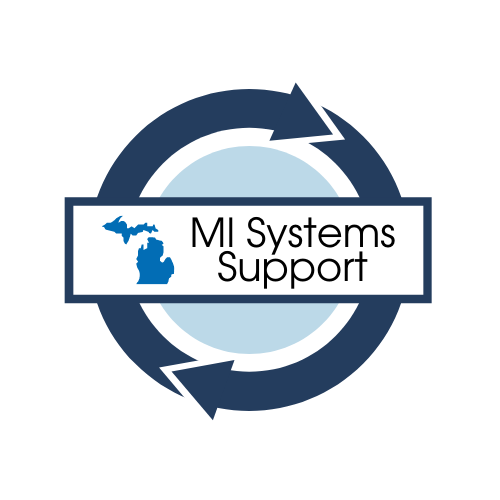
Instructional System
Templates and Tools
Developing Grade-level Learning Progressions
Summary
“A learning progression is a carefully sequenced set of building blocks that students must master en route to mastering a more distant curricular aim. These building blocks consist of subskills and bodies of enabling knowledge” (Popham, 2007).
This resource from the Oregon Department of Education and Berkeley Evaluation and Assessment Research Center is designed to guide leaders and teachers in the development of learning progressions for all grade levels.
-
Learning Progressions may be developed after a particular standard has been unpacked.
This resource provides step by step directions and a template for creating learning progressions. Collaborative teams might use this resource as a guidance template as they work to develop/refine learning progressions for specific grade levels and/or subject areas. This resource can be used in concert with Michigan’s K-12 academic standards.
-
-
Instructional System Practices 2, 3, 4, 5
Learning Progression Directions and Template by the Oregon Department of Education and Berkeley Evaluation and Assessment Research Center is licensed under a CC BY 4.0.
Popham, W. J. (2007). The lowdown on learning progressions. Educational Leadership, 64(7), 83.
Understanding by Design® Template
Summary
Understanding by Design, is one example of a curriculum framework to improve and optimize teaching and learning. The Understanding by Design® framework (UbD™ framework) offers a planning process and structure to guide curriculum, assessment, and instruction. Its two key ideas are contained in the title: 1) focus on teaching and assessing for understanding and learning transfer, and 2) design curriculum “backward” from those ends.
-
District and building leadership teams along with teacher collaborative teams might choose to first read and discuss the UbD™ whitepaper and Suggestion Guide for Utilizing UbD Framework. The UbD™ framework offers a three-stage backward design process for curriculum planning, and includes a template and set of design tools that embody the process. The framework might also be used by district, building, and teacher collaborative teams in order to improve existing curriculum units.
-
-
Bowen, R. S. (2017). Understanding by Design. Vanderbilt University Center for Teaching. Retrieved [04/27/23] from https://cft.vanderbilt.edu/understanding-by-design/.
McTighe, J., & Wiggins, G. (2012). Understanding by design framework. Alexandria, VA: Association for Supervision and Curriculum Development.
Universal Design for Learning
Step-by-Step Planner: Lesson Design Template
Summary
Universal Design for Learning, is one example of a curriculum framework to improve and optimize teaching and learning for all people based on scientific insights into how humans learn. The UDL Guidelines found in the supporting resources can be used by educators, curriculum developers, researchers, parents, and anyone else who wants to implement the UDL framework in a learning environment.
-
District and building leadership teams along with teacher collaborative teams might utilize the Suggestions for utilizing the UDL template and guidelines, and graphic organizer should they choose to implement the Universal Design for Learning framework as their curriculum framework. The framework might also be used by district, building, and teacher collaborative teams in order to improve existing curriculum units.
-
-
CAST (2023). About Universal Design for Learning. https://www.cast.org/impact/universal-design-for-learning-udl?_gl=1*2o6z8i*_ga*NTgxNzg2MjUxLjE2ODAyMDQyMjE.*_ga_C7LXP5M74W*MTY4MDYxMDk4Ny40LjEuMTY4MDYxMjY5OC4wLjAuMA.
Instructional System Implementation of Practices Tools
Summary
Your district may be well on its way to implementing the practices within the Instructional System or you may be just starting out on your journey.
These tools mirror the documents found on the Implementation of Practices page for Readiness and Planning and Practices and Progress Continuum. The tools are downloadable and can be used for assessing where your district is within the Instructional System.
